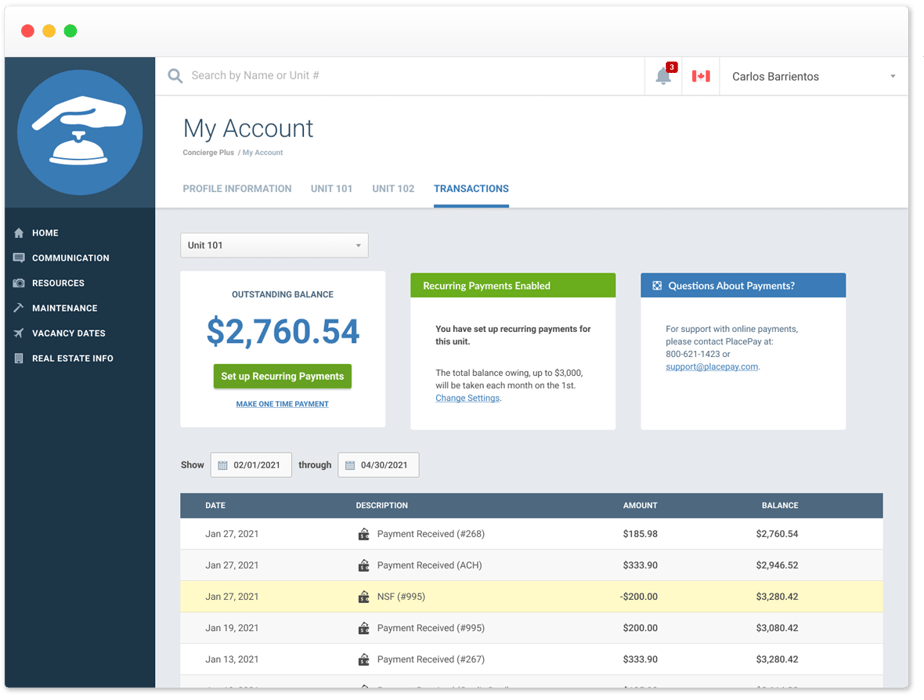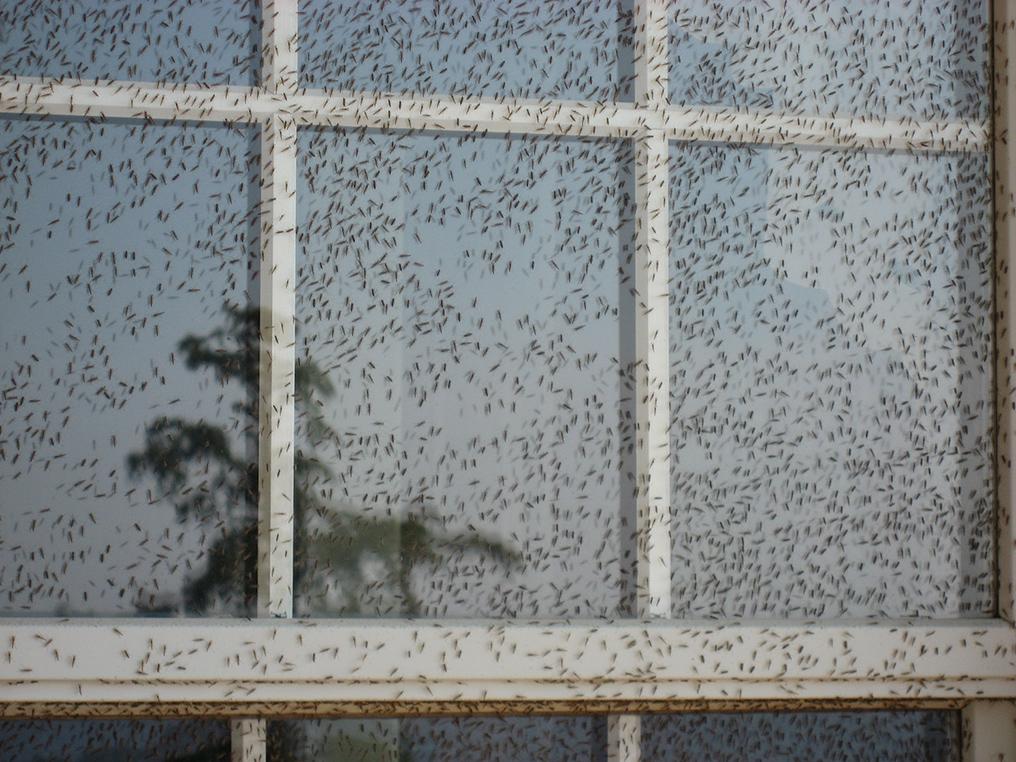Neglecting to stay on top of water quality issues may require reactive management approaches like herbicides and algaecides. Though these tools are effective, they are only treating the symptom of a bigger issue…
Proactive, natural solutions like aeration or beneficial buffers can help balance water quality, giving you the beautiful, clean water you deserve to enjoy.
Managing Nuisance Pond Algae Without Algaecides
Written by Industry Expert Gavin Ferris, Ecologist
 I frequently use herbicides and algaecides in my line of work. Having attended college and graduate school to be an Ecologist, it isn’t something I thought I would do very often, but with the frequency of environmental problems that involve invasive flora, nuisance aquatic weeds and potentially-toxic algae, EPA-registered herbicides and algaecides are an invaluable tool. There are, however, times when their use is impractical, imprudent, illegal or impossible. Maybe the HOA or property manager prefers that herbicides not be applied to nearby waters. Perhaps the regulatory bodies in a given area aren’t permitting the use of certain products. Whatever the reason, sometimes this option just isn’t on the table. But how do we effectively manage algae and aquatic weeds without herbicides and algaecides?
I frequently use herbicides and algaecides in my line of work. Having attended college and graduate school to be an Ecologist, it isn’t something I thought I would do very often, but with the frequency of environmental problems that involve invasive flora, nuisance aquatic weeds and potentially-toxic algae, EPA-registered herbicides and algaecides are an invaluable tool. There are, however, times when their use is impractical, imprudent, illegal or impossible. Maybe the HOA or property manager prefers that herbicides not be applied to nearby waters. Perhaps the regulatory bodies in a given area aren’t permitting the use of certain products. Whatever the reason, sometimes this option just isn’t on the table. But how do we effectively manage algae and aquatic weeds without herbicides and algaecides?
I employ a simple concept that I call the algae triangle, though it works for all forms of vegetation.If you had the same fire safety lessons in elementary school, you may remember the Fire Triangle, which is based on the idea that three elements are necessary for fire: fuel, oxygen and heat. If you have enough of all three, you’ll ignite a fire. Eliminate any corner of the triangle, and the fire goes out. Similarly, if you have water, sunlight and nutrients, you’ll likely develop some form of algae or vegetation. If the triangle becomes too imbalanced, the resulting plant species can become a nuisance.
Obviously, in the lake management and pond maintenance field, we aren’t removing water from the equation, so establishing balance between each factor is the focus. Putting this concept into practice means understanding how sunlight and nutrients affect the ecology of the waterbody in question. Communities have several natural options to help mitigate against algae and aquatic weed growth, including limiting sunlight, improving water circulation and reducing excess nutrients.
How Algae and Nuisance Weeds Thrive
 If a stormwater pond receives full sunlight during the growing season, this directly impacts plants and algae by increasing water temperatures and providing the light necessary for photosynthesis. To prevent sunlight from penetrating the water column and stimulating the growth of deep submersed plants and benthic algae, water levels can be increased. Dredging is an effective strategy to increase the depth of a lake or pond, however, it is often the costliest project a community will ever face. Instead, proactive hydro-raking can help maintain existing water depths and prolong the need for dredging by removing unconsolidated muck and organic debris from the bottom of a lake or stormwater pond. Likewise, blue or black pond dye can be applied to reflect sunlight. Pond dye can enhance the aesthetics of a waterbody while simultaneously absorbing sunlight before it can penetrate the waterbody and fuel excessive plant growth.
If a stormwater pond receives full sunlight during the growing season, this directly impacts plants and algae by increasing water temperatures and providing the light necessary for photosynthesis. To prevent sunlight from penetrating the water column and stimulating the growth of deep submersed plants and benthic algae, water levels can be increased. Dredging is an effective strategy to increase the depth of a lake or pond, however, it is often the costliest project a community will ever face. Instead, proactive hydro-raking can help maintain existing water depths and prolong the need for dredging by removing unconsolidated muck and organic debris from the bottom of a lake or stormwater pond. Likewise, blue or black pond dye can be applied to reflect sunlight. Pond dye can enhance the aesthetics of a waterbody while simultaneously absorbing sunlight before it can penetrate the waterbody and fuel excessive plant growth.
In addition to thriving in water that receives lots of sunlight, algae and nuisance weeds also flourish in stratified waterbodies. A stagnant, sun-warmed layer floating on top of colder, deeper water can serve as a perfect habitat for undesirable species. Circulation with a diffused aeration system breaks this stratification and allows the water to mix more evenly, resulting in more consistent temperatures and less warming in the sunlit portions of the water. Aeration is also effective at improving the health of an aquatic ecosystem in a number of other ways, such as preventing oxygen depletion and fish kills, improving beneficial bacteria levels, and preventing the release of excess nutrients from the sediment. This brings us to the real meat and potatoes of preventative maintenance: nutrient management.
Managing Excess Nutrients in the Water
Phosphorus is the most important nutrient contributing to excess vegetation in lakes and stormwater ponds, and it can enter the water column in runoff containing lawn fertilizers, grass clippings, pet droppings, and waste from faulty septic systems. A number of nutrient reduction strategies should be considered if water quality tests reveal nutrient levels are too high. A professional lake manager can apply beneficial bacteria to the waterbody to utilize nutrients that would otherwise be available for plant and algae growth. Water quality can also be amended by using products that bind with phosphorus to keep it from becoming fuel for nuisance plants. Additionally, strategically planting desirable buffer vegetation around the shore of the waterbody can help to intercept phosphorus before it enters the water and is absorbed by unwanted vegetation. Your lake manager can help identify buffer plants that are native to your region.
When it comes to quickly and effectively managing nuisance aquatic weeds and algae, EPA-registered herbicides and algaecides can be very useful, and in many instances, they are the safest and most practical option available. Nonetheless, natural and proactive pond maintenance techniques can be tremendously effective at improving the health and appearance of almost any community waterbody before a problem occurs, which is why it’s important for homeowners associations and property managers to consider sustainable and holistic plant management methods whenever possible.

SOLitude Lake Management
Josh McGarry
Business Development Consultant
SOLitude Lake Management
Info@solitudelake.com
(888)480-5253
Tags:
Lake Management Articles,
Management News
 SFPMA uses Social Media to inform Clients, Members and Followers. Groups are open to everyone, we send and promote information about member companies that work together in the Property Management Industry. – Supporting each member company and information; getting this information out to readers new members and our industry is important to us!
SFPMA uses Social Media to inform Clients, Members and Followers. Groups are open to everyone, we send and promote information about member companies that work together in the Property Management Industry. – Supporting each member company and information; getting this information out to readers new members and our industry is important to us!







 I frequently use
I frequently use  If a stormwater pond receives full sunlight during the growing season, this directly impacts plants and algae by increasing water temperatures and providing the light necessary for photosynthesis. To prevent sunlight from penetrating the water column and stimulating the growth of deep submersed plants and benthic algae, water levels can be increased.
If a stormwater pond receives full sunlight during the growing season, this directly impacts plants and algae by increasing water temperatures and providing the light necessary for photosynthesis. To prevent sunlight from penetrating the water column and stimulating the growth of deep submersed plants and benthic algae, water levels can be increased. 















 The Jansen Family have been serving the homeowner and construction industry of the Florida Gulf Coast from Fort Meyers to North Tampa, Tarpon Springs and the Islands since 1973. In 2002, Phillip Jansen and his son Travis opened Jansen Shutters & Windows with the intention of providing the best hurricane protection necessary to ensure the safety of your family and business.
The Jansen Family have been serving the homeowner and construction industry of the Florida Gulf Coast from Fort Meyers to North Tampa, Tarpon Springs and the Islands since 1973. In 2002, Phillip Jansen and his son Travis opened Jansen Shutters & Windows with the intention of providing the best hurricane protection necessary to ensure the safety of your family and business.









 Allstate Resource Management can handle all of your
Allstate Resource Management can handle all of your 